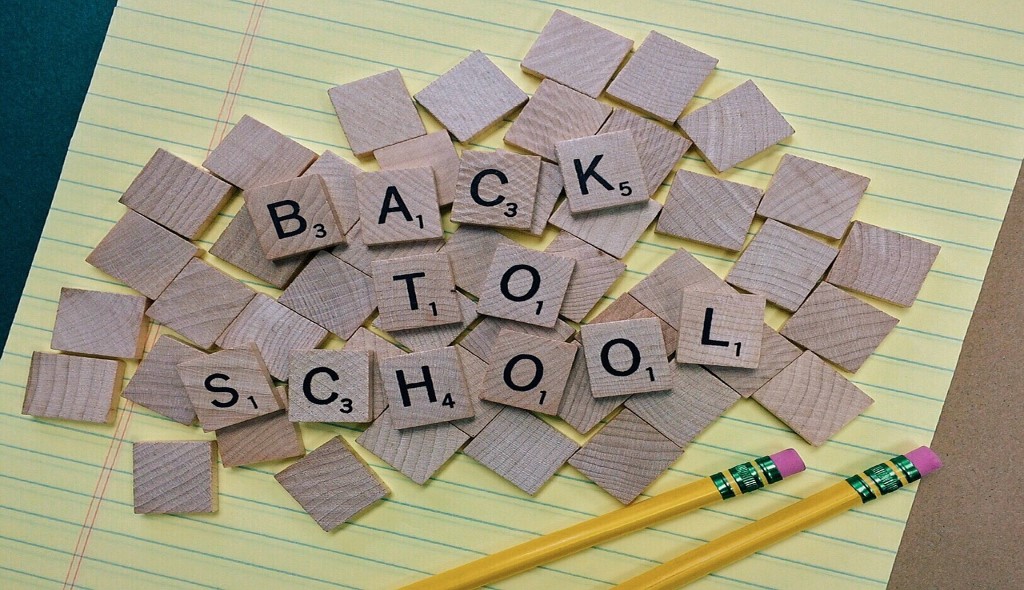Preparing for another semester is like cooking a meal that you know isn’t going to turn out the way you want it. Sure, you’ll still get steak, but it’ll be well done when you wanted medium-rare. And don’t even get me started on that baked potato. Gross. But metaphors aside, there are some things you can do to help yourself prepare for the unexpected because, ironically, you know random challenges you didn’t expect are going to happen throughout the course of the semester. The only problem is, you have to prepare early; leave that steak on the BBQ too long, and it will still get burned. So here are a couple ideas you might want to try near the beginning of the semester that will give you an advantage come finals.
Equip yourself
A painter cannot create a masterpiece without a brush and some acrylic, and a student cannot learn without the proper tools. Yes, of course, have all your dividers and binders and folders in order, but there is one tool that I think is very underused in classrooms; however, it is underused because it is almost always misused in classroom settings: Your cell phone. If you don’t have one, you can get a tablet for next to nothing nowadays, and they are fantastic educational tools to use throughout the year.
Now, I know that many teachers require you to turn off your phones, or maybe they’ll ask you to leave them at the front of the room in a little bag or whatever. Because your teacher knows (or assumes) that it will distract you. Notifications, emails, and IMs are all annoying distractions that are hard to pry your eyes away from, and I honestly don’t blame teachers from separating you from your phone, but if you have it, and I’m sure with a little discipline (which I’ll speak about a little bit later) you can manage your compulsions and can use your phone for research. Yes, research. Be strong.
Brace yourself
Obviously I need to mention a couple caveats, here. For one, you should make it clear with your teacher what exactly you are doing on your phone. I find that if you are forward with your intentions, your teacher will be much more accommodating. Trust me, I know from personal experience when I taught ESL students how important these tools are to students. Every one of my student had a cell phone open on their desk, and all had a language app open with various vocabulary being translated. Was I upset? No. It was expected that they look up and research information because we had discussed the issue ahead of time. So here’s my message: Any lecture or presentation should be supplemented with research; oftentimes, teachers will give links or additional resources for you to look at at the end of the presentation anyway. I highly recommend you do so.
Another thing I wouldn’t do is start googling mid-lecture. Bad idea. Pay attention to what your teacher is saying; simply make a little note of something you’d like to look up after—this is also a tactic from my “Becoming a Good Listener” article as well—and do so at an appropriate time. The ability to supplement a lecture immediately after receiving it has huge benefits; you can remember so much more.
Prepare yourself
OK now the tough part. You have a tool, you are using it wisely, but we are still missing something, and it has everything to do with you. How you prepare for a new semester mentally is so much more important than any tool you could ever have, so I have a little advice on how to compose yourself in the classroom so that you can get the most out of your classroom time.
There are several things that are absolutely, completely necessary for learning in a classroom setting to take place. You can look at it like a two-pronged attack. The first is the most obvious: There needs to be a teacher, somebody with the knowledge. The second is the student, someone to absorb the material. Learning in a classroom, obviously, cannot take place if both pieces are not in place.
So let’s start with the teacher first. For learning to take place, the teacher needs to have gone through the proper education, researched the topic which will be discussed in class, know it inside-and-out so that he/she can answer any questions, and most importantly, present the information in a clear, logical way. Not easy. But teachers need to have all of these abilities for learning to take place.
Now for the important part: The student. What does a student need to have in order to learn the most effectively in a classroom setting? The first is what I have already talked about: You have the proper tools to learn. The second is your mental state; you need to be motivated! You need drive. Learning simply cannot take place if you lack the motivation to complete your classes. Finally, the third is ability. You need to have the ability to absorb the information presented and duplicate it.
Your ability to absorb information in the classroom is directly linked to the amount of effort you put in. If you don’t put in the effort, you don’t learn. Simple as that. So you will need to go into the classroom with the direct intention of paying attention, listening, and researching what is presented directly afterwards.
Just remember, your ability to learn in the classroom isn’t solely dependent on the teacher. I know that teachers are integral to learning in a classroom, but you are the other equally important piece to this two-piece puzzle, and I would say that one is not more important that the other. You need to have the proper tools, ability, and motivation. So get prepared to change some habits this semester!

